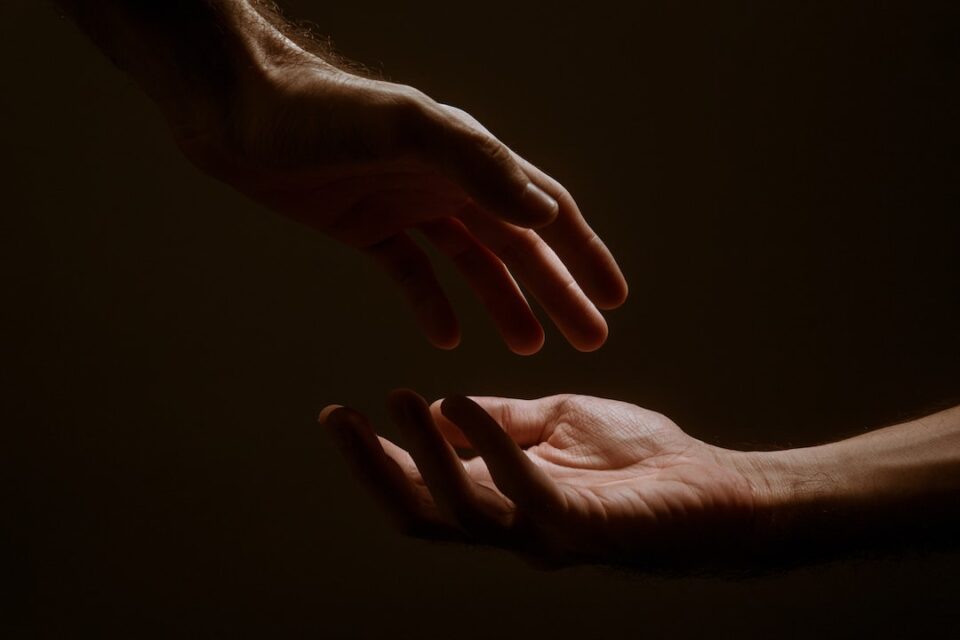We all experience emotional wounds throughout our lives, whether it be a broken heart, loss of a loved one, or a traumatic event. These wounds can impact us deeply, affecting our mental and physical health, relationships, and overall quality of life. While there are many approaches to healing emotional wounds, one powerful tool that has been utilized for centuries is faith.
Faith is defined as a strong belief or trust in someone or something, particularly in a higher power or divine force. It can provide comfort, hope, and guidance during difficult times and can help individuals find meaning and purpose in their lives. But how exactly does faith help in healing emotional wounds? Let’s explore some ways:
Faith provides a sense of meaning and purpose
One of the greatest challenges of dealing with emotional wounds is the feeling of emptiness or lack of purpose. Faith can provide a sense of meaning and purpose, helping individuals make sense of their suffering and providing a reason to keep going. Whether it’s an understanding that their struggle will lead to a greater good or a belief in a higher purpose for their pain, faith can help individuals find meaning in their suffering and move forward with a greater sense of purpose.
Faith can provide comfort and support
Emotional wounds can be deeply isolating, causing individuals to feel alone and disconnected from others. Faith, on the other hand, provides a sense of community and support. Whether it’s through a religious congregation or spiritual community, faith can provide a support network of people who share similar experiences and beliefs. This network can provide a sense of comfort, connection, and belonging, all of which can help individuals heal and move forward.
Faith can provide a sense of hope
Hope is a powerful force in healing emotional wounds. It can be difficult to see a way forward when you’re in the midst of pain and suffering, but faith can provide a sense of hope, even in the darkest times. Whether it’s hope for a better future or hope for a greater purpose, faith can provide a sense of optimism and a belief that things will get better.
Faith can provide a sense of forgiveness
Forgiveness is a critical aspect of healing emotional wounds, but it can also be one of the most challenging. Faith can provide a sense of forgiveness, both for oneself and for others. Through a belief in a higher power or divine force, individuals can find the strength and motivation to forgive themselves and others, letting go of past hurts and moving forward with a greater sense of peace and freedom.
Faith can provide a sense of gratitude
Gratitude is another important aspect of healing emotional wounds. It can be difficult to find things to be grateful for when you’re in the midst of pain and suffering, but faith can provide a sense of gratitude even in the darkest times. By focusing on the blessings in their lives, individuals can shift their perspective and find a greater sense of appreciation for the good things in their lives.
Faith can provide a sense of inner peace
Finally, faith can provide a sense of inner peace that is crucial in healing emotional wounds. Through prayer, meditation, or spiritual practices, individuals can find a sense of calm and tranquility that can help them cope with the pain and suffering they’re experiencing. Additionally, an understanding of a higher power or divine force can provide a sense of perspective that helps individuals find peace, even in difficult times.
In conclusion, faith can be a powerful tool in healing emotional wounds. Whether it’s through a sense of purpose, comfort, hope, forgiveness, gratitude, or peace, faith provides a path forward for individuals struggling with emotional pain. However, it’s important to recognize that faith is not a one-size-fits-all solution, and different approaches may work better for different individuals. Whether it’s through faith, therapy, or other healing practices, the important thing is to find what works for you and to keep moving forward towards a greater sense of healing and wholeness.


